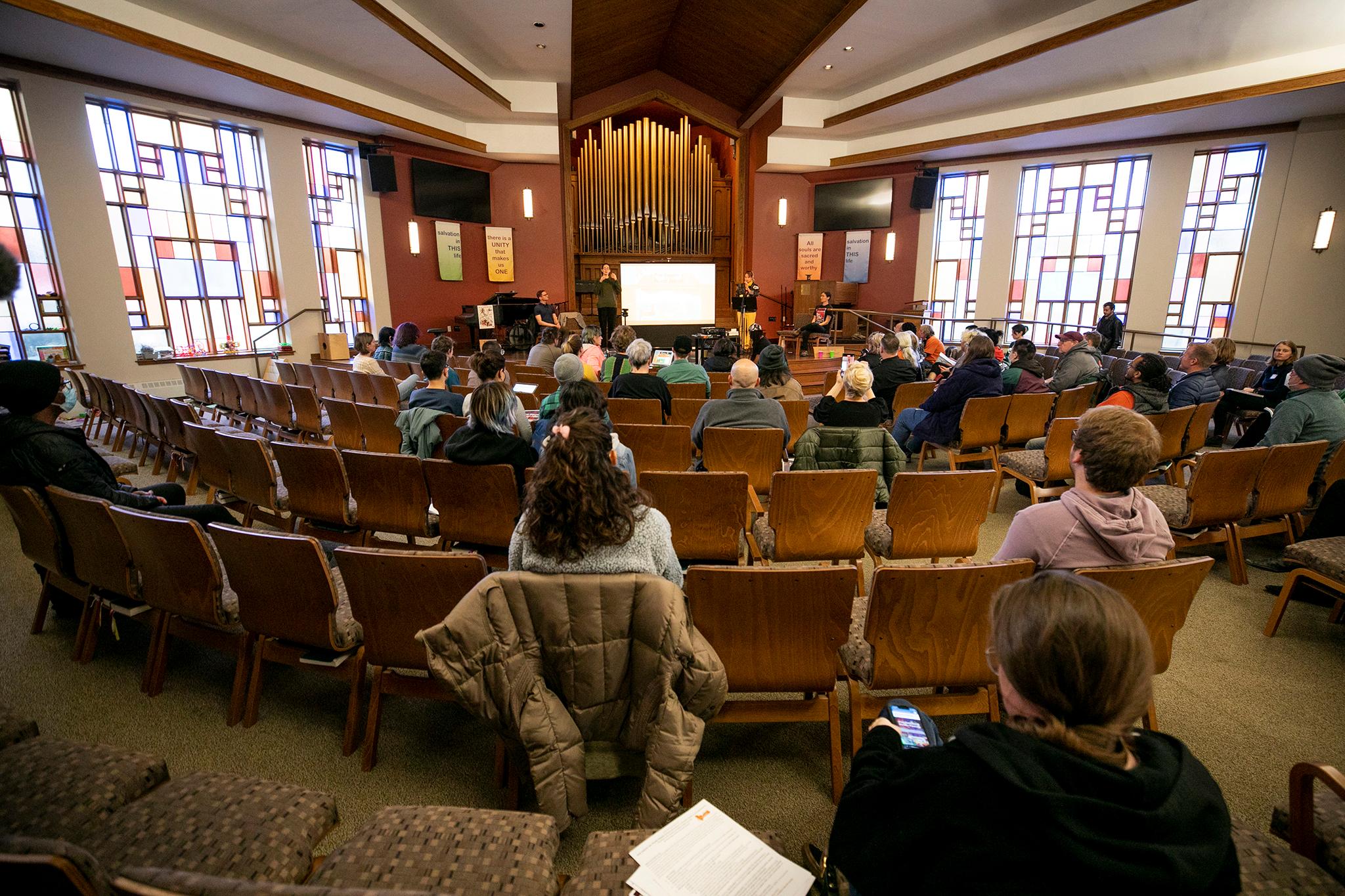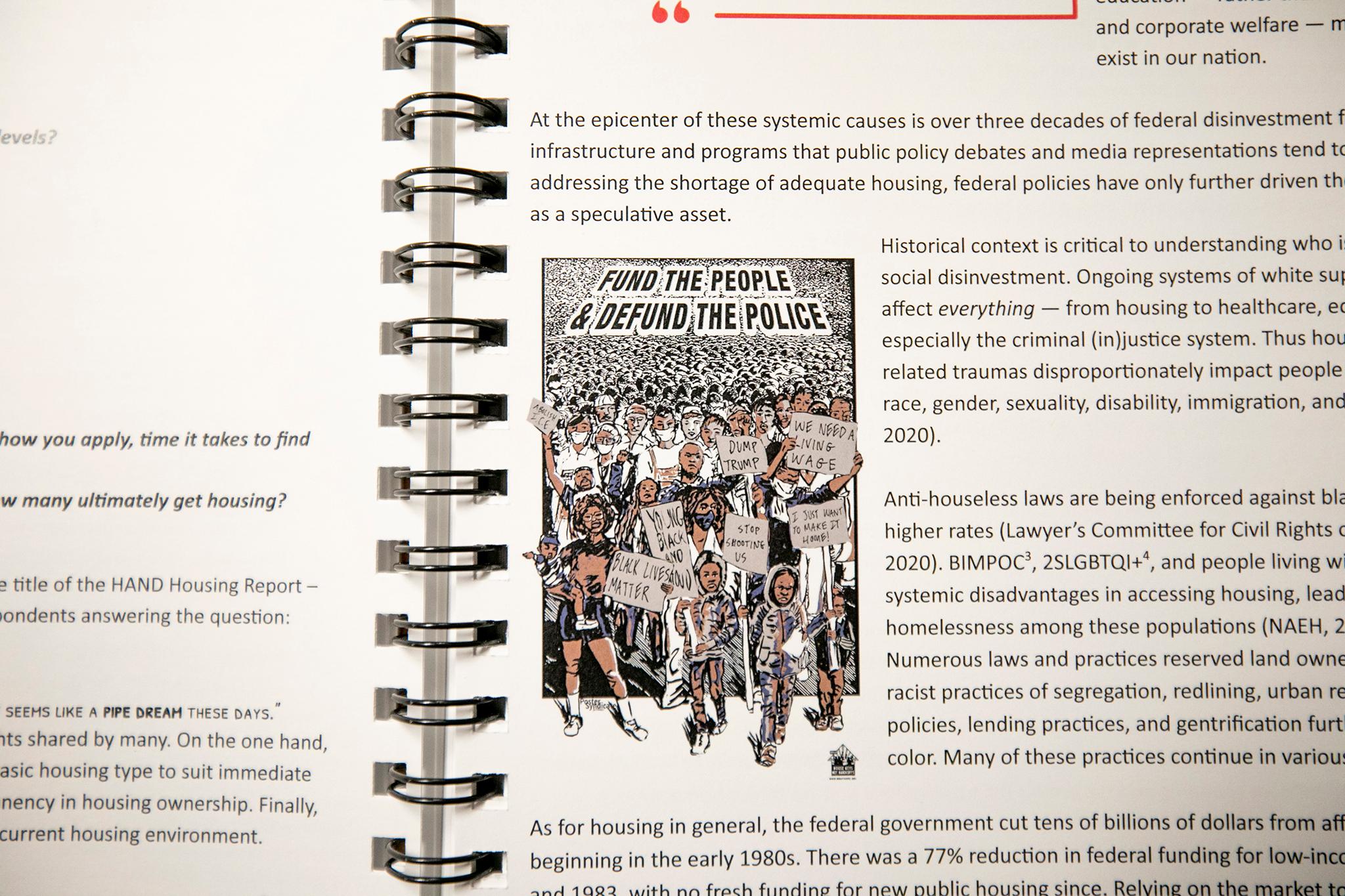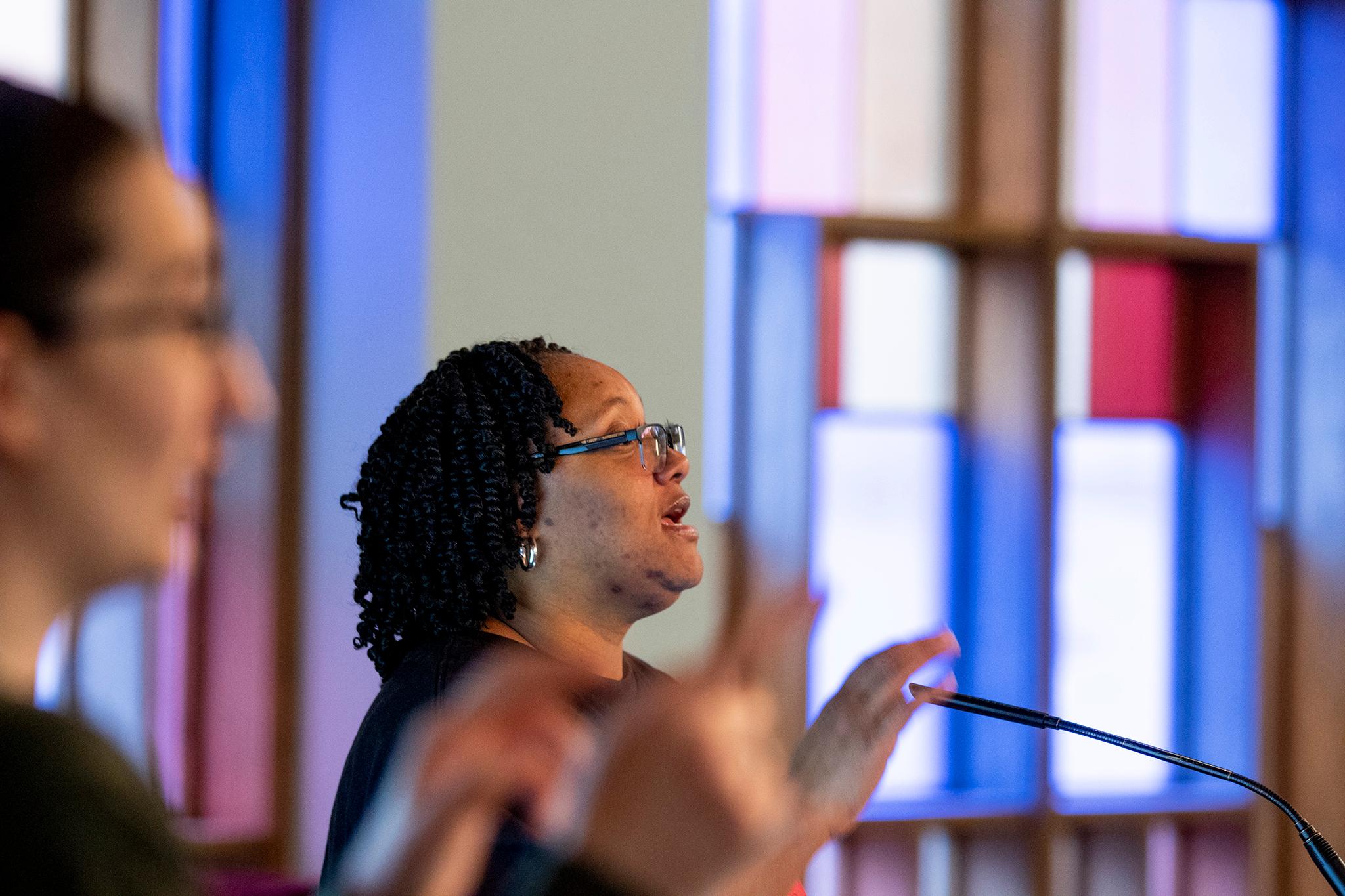Many Denver candidates in the 2023 race discuss what resources people experiencing homelessness should accept. But there isn't much evidence political hopefuls are speaking with unhoused people about what they say they need.
The housing advocacy group, the Housekeys Action Network Denver, or HAND, and the Western Regional Advocacy Project (WRAP) just released "Pipe Dreams and Picket Fences," a report of results from a massive 2022 housing survey that asked 828 people experiencing homelessness what sort of housing solutions advocates should fight for. The report also analyzed the state of public housing over the past decade and the failures of current homelessness prevention policies.
"If we are working to 'end homelessness,' as is so often stated, this work must be directed by houseless people themselves," the report states. "Lived experience offers an inmate understanding and ability to identify current and foreseeable obstacles that perpetuate this ever-pressing issue. This report provides direction, for and by houseless people, around the kind of housing sought - the priorities, desires, barriers, pathways to accessing, and support needed for housing."

In recent political debates, some candidates have speculated that many unhoused people simply don't want housing. The results of the survey suggest that isn't true in the vast majority of cases.
"Between 93% and 99% of houseless people want some form of housing," the report states. But four walls and a roof aren't necessarily enough.
People want safety where they're staying, their freedom and community, according to the report. Housing needs to offer residents the basics: the ability to control the temperature, restrooms with showers and accessible locations.
So-called affordable housing isn't actually attainable by most people experiencing homelessness, HAND reported. At least 88% of people surveyed need housing priced below $1,000; at least 60% need it to be priced under $600, and at least 12% need it to be free.
Over 50% of people say they can't afford housing because they don't have access to money, and 38% can't afford it because of bad credit scores that disqualify them from renting.
But there are other issues that make securing housing tough: 35% of people surveyed don't have a phone; nearly 33% lack official documents and nearly 32% have felony charges.

For people who secure housing, keeping it can be tough. For 63%, the main barrier to staying housed is needing some sort of financial support.
Other top issues that allow people to stay housed include being allowed to invite guests into their spaces, needing help navigating paperwork and bureaucracy, legal support or mental health support.
Curfews, restrictions on guests, staff room checks, religious requirements and bans on roommates or partners block people from choosing some housing options.
"Houseless people rightfully lack faith in the housing system," according to the report. "Their doubt is backed by years-long waitlists, abysmal housing lottery odds , and a dependency on service providers and case managers as gatekeepers."
People interviewed for the survey said they waited more than two years on waitlists and for nearly four years to actually secure housing.
Of the people interviewed, 36% lived in shelter.
While housing vouchers are one of the common tools used to get people housed, only 44% of the people surveyed had accessed housing or knew someone who had through a voucher. And just 28% of people preferred vouchers to pre-built affordable housing units. Landlord discrimination, the need for housing navigation services and the struggle to find housing proved to be barriers for people using vouchers.

The study also looks at the erosion of public housing over the past 10 years and a shift toward market-based solutions that HAND argues do not meet the actual needs of unhoused people.
According to the report, the U.S. has lost 228,289 low-income public housing units, and Denver has lost 731 public housing units. The alternative strategy for providing housing has been a voucher system, which HAND says, in its report, has failed for the majority of people who receive vouchers.
In 2021, five months after receiving vouchers through the Denver Housing Authority (over one month beyond the current 120-day expiration), only 77 of 1,000 people with vouchers got housing," according to the report. "This is an 8% chance of finding housing using a voucher."
Low-Income Housing Tax Credits have increased by 181%, according to the report, and most of that money has funded 12,588 units of housing for people making between 40% to 70% of the area median income. Compare that to the mere 3,029 units of housing for people making under 30% of the area median income.
Public solutions are needed to address homelessness, according to the report.
HAND asserts that developers are profiting from the housing crisis. Meanwhile, the Department of Housing and Urban Development budget remains stagnant, even as the cost of construction and housing rises.
"As the federal government turns to the private market for low-income housing, housing is subsidized for wealthy homeowners (most over 100% AMI) through Tax Increment Financing," the report states. "The total in tax deductions awarded nationwide was just under $200 billion in 2019, while the entire budget for the Department of Housing and Urban Development (HUD) was $53 billion."
According to the report, homelessness stems from choices the federal government made since the 1980s. That includes Ronald Reagan-era gutting of public housing and other social services.
Current homelessness strategies that don't prioritize the creation of affordable housing simply aren't working, according to HAND.
"From top to bottom, the government response to houselessness has failed for one simple reason: It has never acknowledged through action, only words, that the number one cause of houselessness is the absence of housing," the report stated. "To this day, there has been an entrenched reluctance to create affordable housing. The response has been a continual rearranging of the deck chairs on the Titanic."











